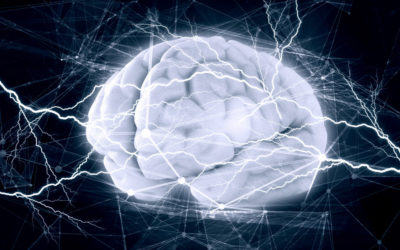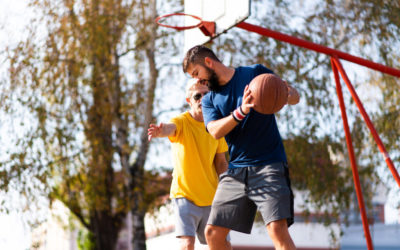Quick Hits
Daily brief research updates from the cognitive sciences

Cognitive games have been around for many years now – the first wave of popularity came with Nintendo’s “brain jogging” almost two decades ago now.
These games have claimed that they improve brain function and indeed there has been some solid research to show this does happen. But when digging into the research an inconsistent picture emerges.
The sticking point is what we call near and far transfer. If you train anything you will get better at it – that is no surprise, but the question is how far can this transfer to real life? So, if you are playing any form of cognitive game such as a short-term memory game, the really important question is how much does this transfer to everyday life, i.e. will my memory be improved when meeting people or going shopping?
It is precisely this that has shown inconsistent results. And it is precisely this that a group of researchers at the University of California wanted to get a better grip on.
What did they find?
They conducted a series of experiments with 500 individuals and found consistent results. They found that the degree of near transfer predicated far transfer.
Near transfer is doing similar but different tasks whereas far transfer transfers to less related tasks. For example, if I were training running on a treadmill, near transfer would be improving my road running performance (similar but not exactly the same), and far transfer would be improving my tennis or cycling ability (related but very different).
So, it appears that once transfer happens, it can happen also to more unrelated tasks. The question they would now like to answer is why? One reason is that people may by applying different skills to complete the task which don’t transfer or are unable to generalise the skills, or another factor may be that there is another bottleneck. In the above treadmill running eample, improved cardiovascular fitness may improve most sports, but in tennis coordination may be the bottleneck that impedes my improvement, and this is not trained on the treadmill.
I found this particularly interesting because I have followed the research over the years but also because one skill, I have found to be useful and different between individuals, in training and coaching executives, is that some of these senior leaders seem very good at generalising and applying various principles to different scenarios and others can’t seem ot do so. Maybe it is the difference between a generalised brain and a specialised brain?
The researchers are looking for participants, by the way, to do a large-scale citizen study with up to 30’000 participants to give us some robust answers to the mechanism of near and far transfer.
I look forward to seeing the results!

Andy Habermacher
Andy is author of leading brains Review, Neuroleadership, and multiple other books. He has been intensively involved in writing and research into neuroleadership and is considered one of Europe’s leading experts. He is also a well-known public speaker speaking on the brain and human behaviour.
Andy is also a masters athlete (middle distance running) and competes regularly at international competitions (and holds a few national records in his age category).
Reference
Anja Pahor, Aaron R. Seitz, Susanne M. Jaeggi.
Near transfer to an unrelated N-back task mediates the effect of N-back working memory training on matrix reasoning.
Nature Human Behaviour, 2022
DOI: 10.1038/s41562-022-01384-w
More Quick Hits
Yes, Fake Smiling Does Improve Your Mood
Can just smiling, even if fake, improve your mood? This has been proven, debunked, re-proven and now re-re-proven…
How Your Brain Decides to Help Others in Danger
In times of crises and danger we may hide and flee as our natural instincts would guide us, or do something else: put ourselves at danger and help others.
Two Types of Willpower
There are two types of will power – and one is much more effective…
Our Brains Seem to Use Quantum Computations
It has been proposed that our brain uses quantum processes but this is hard to prove – until now that is…
Insults Trigger the Equivalent of a Slap to the Face in the Brain
What do insults do to our brain wave patterns, do they degrade over time and how do they compare to compliments?
Even a Short Bout of Exercise Can Boost Brain Growth
Exercise is good for you – we all know that. But can just a single bout of exercise do you and your brain any good?






